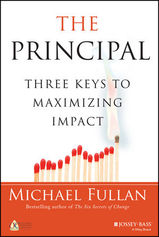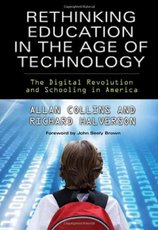
Last week I was brainstorming with a bunch of educators about the best new directions to take our school. I suggested that every student should learn to code, or program computers, at our school. Some folks at the table were nodding in agreement, others seemed shocked at the notion. I was asked if I was serious. I was asked why every kid should be able to do something so advanced with computers. There were expressions of resentment if such a requirement would be made. Some doubted that it would be a valuable use of time.
As a former teacher of technology classes, I know how excited students get about coding, and how they really do learn about far more than just limited technology uses. They develop pattern awareness, logic, mathematics, problem solving, and creative skills. But these types of learning are difficult to express without examples to show.
I tried to justify my position by referring loosely to studies and experts, but I did not really convince any of the doubters. I think I need to work on my arguments, and this post is an attempt at providing some compelling arguments for coding. It is also a timely post, because in less than a week, the annual Hour of Code event will happen worldwide, with the goal of tens of millions of students spending at least one hour programming computers.
So here is some background information for doubters that coding is a realistic requirement for all students:
The UK has now put mandatory coding into the National Curriculum for all students starting at age 5.
Mitch Resnick of MIT delivered this compelling TED Talk over two years ago, explaining the benefits of coding for all students. He said our kids are familiar with technology, but when a person can't code it is like being able to read but not write.
Code.org provides the following tools to learn coding.
An October 2014 study called Fast Forward 2030 examined the jobs market of the future and concluded that the ability to use computers to solve problems will be a critical skill. It also said that half of the jobs titles that exist today will not exist in 10 years! Times are changing!
"A growing proportion of jobs in the future will require creative intelligence, social intelligence and the ability to leverage artificial intelligence."
Check out those last three words. Coding is the way to leverage artificial intelligence. I honestly believe that someday soon the ability to code will be a critical skill that divides those who can leverage technology and those who will be at the mercy of technology.
I'm going to make sure my own kids can do it.
As a former teacher of technology classes, I know how excited students get about coding, and how they really do learn about far more than just limited technology uses. They develop pattern awareness, logic, mathematics, problem solving, and creative skills. But these types of learning are difficult to express without examples to show.
I tried to justify my position by referring loosely to studies and experts, but I did not really convince any of the doubters. I think I need to work on my arguments, and this post is an attempt at providing some compelling arguments for coding. It is also a timely post, because in less than a week, the annual Hour of Code event will happen worldwide, with the goal of tens of millions of students spending at least one hour programming computers.
So here is some background information for doubters that coding is a realistic requirement for all students:
The UK has now put mandatory coding into the National Curriculum for all students starting at age 5.
Mitch Resnick of MIT delivered this compelling TED Talk over two years ago, explaining the benefits of coding for all students. He said our kids are familiar with technology, but when a person can't code it is like being able to read but not write.
Code.org provides the following tools to learn coding.
An October 2014 study called Fast Forward 2030 examined the jobs market of the future and concluded that the ability to use computers to solve problems will be a critical skill. It also said that half of the jobs titles that exist today will not exist in 10 years! Times are changing!
"A growing proportion of jobs in the future will require creative intelligence, social intelligence and the ability to leverage artificial intelligence."
Check out those last three words. Coding is the way to leverage artificial intelligence. I honestly believe that someday soon the ability to code will be a critical skill that divides those who can leverage technology and those who will be at the mercy of technology.
I'm going to make sure my own kids can do it.












 RSS Feed
RSS Feed